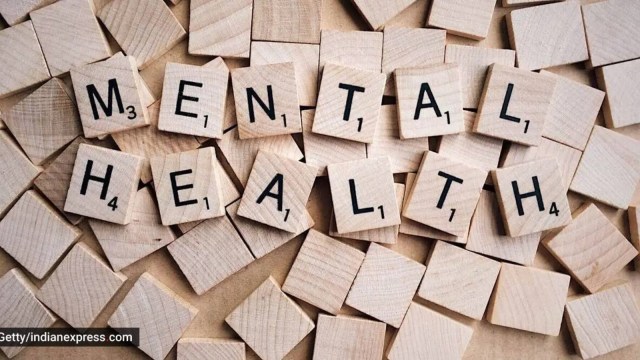Maharashtra mental health helpline gets 97,372 calls since launch; sadness most reported issue
Counsellors frequently receive calls from school students experiencing exam-related stress, uncertainty about career choices, and anxiety over admission failures.
 Mental health issues are not confined to affluent adults. Stigma continues to deter many from visiting psychiatrists.
Mental health issues are not confined to affluent adults. Stigma continues to deter many from visiting psychiatrists.
Sadness, stress, sleep disturbances, anxiety, and family conflicts. These are among the key issues over which callers are seeking help on Maharashtra’ s mental health helpline number: 14416.
Ever since its launch in October 2022, the mental health helpline has received 97,372 calls.
As a part of the National Mental Health Programme, Tele Mental Health Assistance and Networking Across States (Tele-MANAS) toll-free helpline was launched across India.
In Maharashtra, the helpline is established across four centres: Pune, Nagpur, Beed, and Thane.
Each centre is staffed with around 20 counsellors dedicated to assisting callers. These counselors possess qualifications in counseling or social work. It has so far received, on an average, 267 calls per day, according to data released by the state health department on World Mental Health Day.
Among the prevalent complaints, sadness of mood was the most reported issue, with 13,274 calls.
Stress-related concerns followed closely, reflecting high stress levels among individuals. Anxiety and sleep disturbances were also commonly reported. Additional concerns included reduced sleep and various psychological issues.
Other notable complaints involved aggression or risk of harm to others, relationship conflicts, and feelings of hopelessness or worthlessness. Calls related to substance use and addiction were also frequent, along with medical issues.
Approximately 88.41 per cent of the calls were routine, information-related inquiries comprised 6.57 per cent of the calls, while prank calls accounted for 3.83 per cent. Emergency calls represented 1.19 per cent, highlighting the need for immediate intervention.
Dr. Swapnil Lale, Additional Director of Health Services in Maharashtra, stated, “We have observed that the majority of calls come from individuals aged 18 to 45 years, with 60 per cent of the callers being male. This difference in call volume between men and women reflects varying mental health challenges and social factors that may influence their willingness to seek support.”
A concerning trend has emerged, with 1.3 per cent of callers aged 0-12 years, suggesting that even children are grappling with emotional difficulties.
“Adolescents often reach out to mental health helplines for various reasons, including emotional distress, stress from academic pressures, and struggles with identity. Family conflicts, experiences of bullying, substance use issues, and mental health disorders also prompt them to seek support,” Dr. Lale added.
Counsellors frequently receive calls from school students experiencing exam-related stress, uncertainty about career choices, and anxiety over admission failures.
“Dealing with children can be tricky, as they are often sensitive and reluctant to share personal details like names or addresses,” noted a counsellor.
Many callers mistakenly interpret palpitations caused by anxiety as signs of a heart attack. “In emergency calls, we focus on calming them down to prevent any harmful actions. Each district hospital has ten beds available for those in need, and we encourage them to visit a nearby facility,” the counsellor explained.
Mental health issues are not confined to affluent adults. Stigma continues to deter many from visiting psychiatrists.
“However, through these telephonic conversations, they can seek help. In most cases, callers don’t require medication; simple lifestyle changes like diet, exercise, and meditation are often sufficient. In more severe cases, we recommend consulting a doctor. We have also made psychiatrists available at primary health centers for consultations,” Dr. Lale concluded.







